Becoming the Mask
The line between man and monster can be tenuously thin.
The culture of Dhanû places great value on their masks - elaborate headdresses that look like monsters, devils or heroes. They speak to the virtues of the wearer and their aspirations, both in and out of battle. But sometimes, the warrior loses themselves to the identity crafted so carefully by their mask.
Those who become their mask are possessed by the spirit of their mask. No longer is it a statement of identity or virtue, but a consuming madness that makes them act as the creature depicted on their mask. The afflicted howl like animals, crawl on all fours and gnash their teeth, acting out the costume they wear.
Causes
When is the Mask no longer something you wear but something you become?
Becoming the Mask is unique to Dhanû society, where the use of masks is deeply ingrained in their culture. The afflicted are believed to be possessed by evil spirits, attracted by oaths being broken or some act of cruelty being performed. Where virtue fails, madness follows.
Rarely, and usually only when it afflicts nobles, the unfortunate is believed blameless of any wrongdoing, and the blame is instead shifted to wicked forces and malevolent thaumaturgy.
An imbalance that affects the mind. Too many thoughts that have gone towards the bestial side of one's nature.
An infection of the head, perhaps caused by some scratch by the mask or poison left behind in the manufacturing process.
Symptoms
I would keep those chains locked tight if I were you.
When the afflicted Becomes the Mask, they believe themselves to be what their mask depicts and give themselves over to it. If it is of a beast or monster, they will act like a wild animal - often with tragic results. They will snarl and bite, attack loved ones, and run around on all four. Episodes can last for hours, and the afflicted cannot always remember what they did under its spell. Removing the Mask usually ends the episode, though not always immediately, or without consequence.
If the Mask depicts a person or entity, the afflicted will act and speak as if they were that person. They are less dangerous in this state and sometimes believed to be channeling the true spirit of the person they believe themselves to be.
The fate of such unfortunates depends on their mask. Most wear the visage of great heroes, wise sages, or cunning leaders, and are treated accordingly - for a time. Others might honor brutal warriors and are sometimes made to pay for the atrocities of their mask's likeness.
Particularly callous clans sometimes keep such masked warriors around for entertainment or to exploit the superstitious. These warriors rarely recover.
A few clans encourage this affliction, using those who succumb as shock-troops. They throw the wild and ravening warriors at their enemies as one might a spear.
Treatment
Removing the mask only removes the immediate problem. After that, the cursed warrior must be purified. These exorcisms vary in severity and execution as befits the rank of the patient. Poor, low-class warriors are subjected to harsh physical abuse, burns, and flagellation meant to drive the spirit from their body while most nobles are treated with a lighter touch. Expensive incense, meditation, and obligations are sworn to avoid lapses into madness are sometimes all deemed necessary. Much depends on the clan of the afflicted.
In Dhanû, neither Atma nor Deva are given much credence when it comes to treating this curse. In their eyes, it is no illness, but a grave and festering malady only warriors can best.
The mask is most often ritually destroyed with the afflicted made to perform the destruction. Even nobles must give their masks up or risk bringing even greater evil into their clans. Once destroyed, the pieces are thrown into the Writhing Dragon River to be washed away.
With the support of their clan, family, or comrades, most afflicted eventually recover. Despite the changing details of the treatment, it remains effective. Only when the patient is left to suffer alone or their new identity encouraged does the madness linger - sometimes for years.
Mask of Madness
Never underestimate the many ways something can become much worse.
For those who suffer from Becoming the Mask, their troubles have only begun once they have recuperated. Crimes during the throes of madness are not excused. It is not uncommon for the afflicted to have committed acts of murder and cannibalism, often against their own kin. Such sins weigh heavily in Dhanû society and are punished harshly.
Others never recover, retreating into their mask to hide from their crimes. Lost to madness, these cursed souls spend the rest of their lives caged and masked - locked away with their shame.
Dhanû Masks Masks are an important pillar of Dhanû's warrior culture. Every warrior has at least one, and a warrior's status depends on its state. As such most are finely crafted works of art, made from chitin, ivory, and metal. Masks of beasts or devils tell foes that this warrior is to be feared or friends that they will be brave and fierce in combat. Some would rather lose an arm or leg than their mask. Read More About Dhanû Masks
Dhanûian
Forged by the harsh caverns of the Sheoin Region, the Dhanûian are a strong and rowdy folk. Skilled poets and fearless warriors, they don masks to show the world all they are and hope to be. Read More About The DhanûianWitchcraft and sorcery are nebulous and undefined forces in Dhanû history, but never is it good. Warlocks are villains, and sorcery is a force that corrupts and destroys. Most commoners in Dhanû have never encountered true Thaumaturgy and the nobles who have fear it.
Sōtari
No other group can claim as many victims of this possession as the Beast-Skins, or the Sōtari. Their warriors drape themselves in the bloody carcasses of monsters and channel their wild fury in battle. For their part, the Sōtari believe that Becoming the Mask is not a curse at all, but a blessing - albeit one that must be carefully watched. Read More About The SōtariOutside Dhanû
Becoming the Mask is unknown outside of Dhanû, even among the few rare Dhanûnians who leave their homeland. Nor do they speak of it to other people, telling none of the curse and its shame. Outsiders who have met a Dhanû in the thralls of madness have told of howling berserkers and merciless warriors, adding to their dark reputation in the Inner Shell.A few become infamous while in the thrall of their sickness. The Beast of Dhanû was a low-ranking warrior when she became her mask, but carved a bloody legend across the city-state. As the savaged bodies mounted in number, every clan raced to be the one to fell the beast. In the end, her tally as the Beast was greater than as a warrior. It took more than ten warriors to bring the Beast down after a long and costly battle. Her true name was forgotten, the mask she wore locked away.


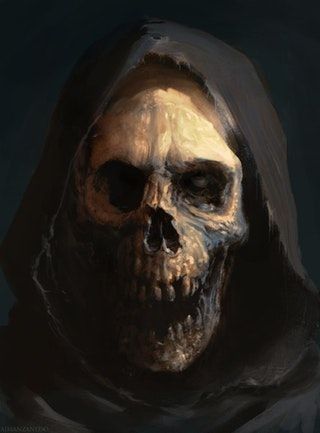
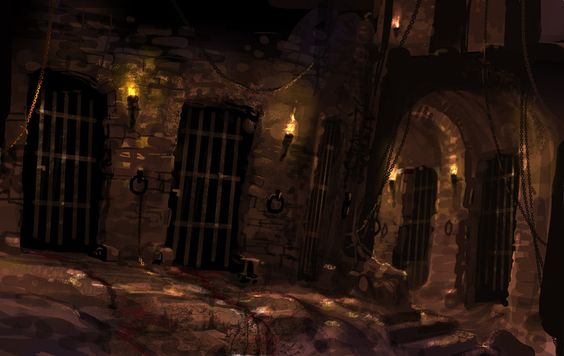
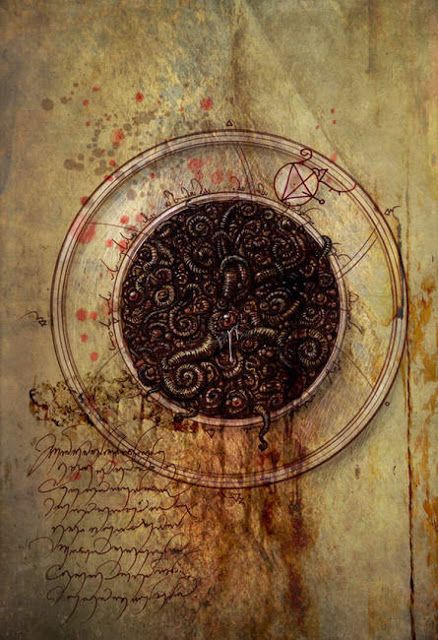

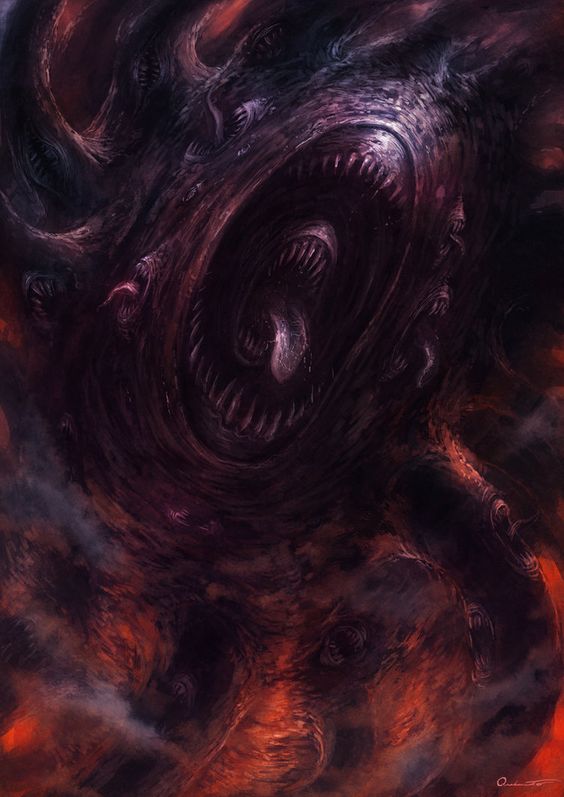




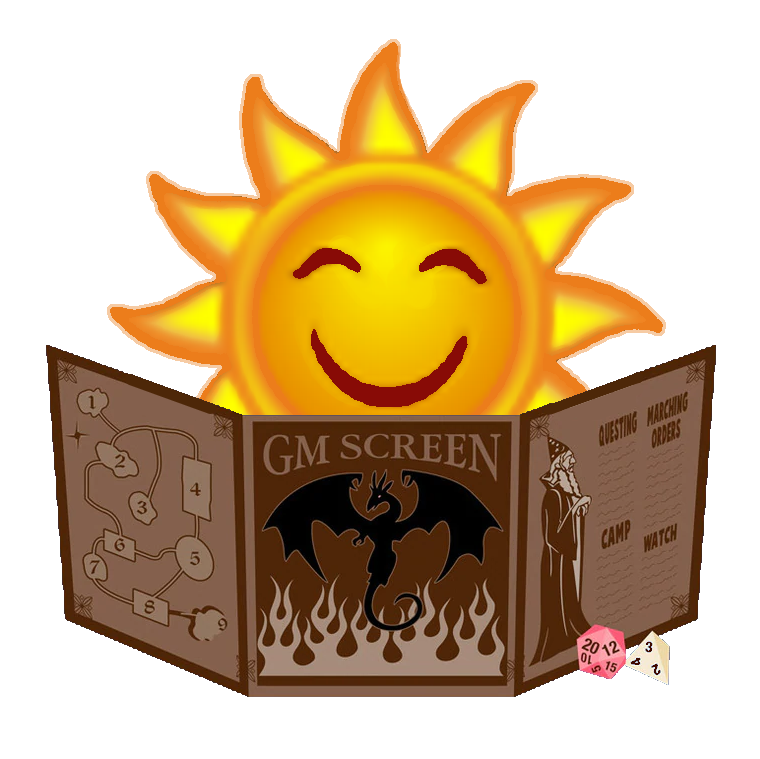

Cool curse. Does the rest of the world look at it as just another strange affliction or...?
Chances are that it isn't terribly known outside Dhanu. News travel slow in the caverns, especially news people don't particularly want to spread. :)
Creator of Araea, Megacorpolis, and many others.
Ah, fair enough. Probably worth writing something about how others look at it some time.